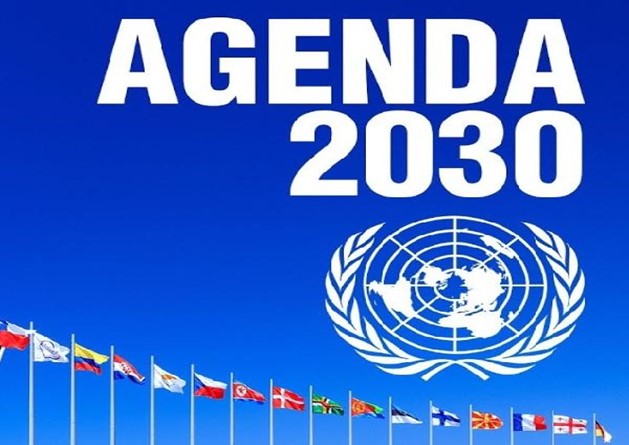Governments have given billions of taxpayer money to Gates and the World Economic Forum. In 2019 before COVID19 was introduced to the world the UN and WEF officially committed to a partnership arrangement.
On May 4, the EU and several European governments held a Covid 19 donor conference and pledged 7.4 billion euros of tax money. The money will be given to organizations funded by Bill Gates and the World Economic Forum in a non-transparent way. For a long time, Gates had to give money to the UN and governments to be allowed to co-govern the world. Now he is given money by governments for his global governance work.
Only two days earlier the G20 group of the most important industrial nations let the World Economic Forum, i.e. ultimately by Silicon Valley companies, draw up their digital strategy for “the pandemic and beyond”. How the future will be determined as to compliance to a One Global Public-Private Corporate Governance.
The German government explained information as to the ‘Global Response’ initiative to combat the corona virus, through a press release.
24 April 2020, the Gates Foundation launched an initiative less than 2 weeks later that the EU and Governments are holding a Donar Conference to contribute 7.4 billion Eros.
On 24 April, the Gates Foundation launched an initiative and less than two weeks later the EU and governments are holding a donor conference to contribute 7.4 billion euros. This response time is extraordinarily short.
In 2018, GPMB was founded by the World Health Organization (WHO), which has the Bill & Melinda Gates Foundation as one of its largest funders, and the World Bank, which is cooperating closely with the Gates Foundation in various bodies including the ‘Better Than Cash Alliance’. Chris Elais the president of the Gates foundation is a member of the GPMB Board of directors.
Taxpayers’ money, ordered indirectly by the Gates Foundation is to be distributed to various Gates-funded organizations to be passed on to big pharmaceutical companies that comply with the philosophy of Bill Gates and the World Economic Forum.
Much of the money raised will be given to the World Health Organization (WHO), the Global Alliance for Vaccines and Immunization (GAVI) and the Coalition for Epidemic Prevention Innovation (CEPI) to invigorate their capabilities.
GAVI provides immunisation in developing countries. Main financiers are the Bill & Melinda Gates Foundation, the World Bank and the WHO.
CEPI is an offspring of the 2017 Davos meeting ot the World Economic Forum, the club of the largest multinational corporations.
Gates Foundation, founding members are the WHO, significantly financed by Gates, and the EU Commission, delegating one member to the Board of Directors.
Apart from CEPI, Unitaid and the Global Fund are reported as recipients in various media. Unitaid is a WHO-based fund, co-funded by the Gates Foundation.
The purchasing of large quantities of drugs at discount prices for people in poor countries, then forwarding those drugs to partner organizations to ensure they are only used in the target countries. Implementation partners include Gates Foundation, Clinton Foundation and GAVI
Unitaid supports pharmaceutical companies’ profit maximizing strategy.
Under the aegis of WHO, The Global Fund was established by money from the Gates Foundation, however now its manly financed by UN Nation Governments.
What do all these Gates-funded and co-run institutions do? Among other things, they write reports that are most interesting by what they leave out.
WHO, Gates Foundation happen to be part of organizing or taking part in the Corona Pandemic Simulation Exercise Event 201 in October 2019.
The Global Preparedness Monitoring Board (GPMB) is an independent group of global leaders that have recently called for a renewed global social contract laying out six solutions for what they call a ‘safer world’, in their annual report which are in the Strategic Plan 2021-2023. Other publications are ‘A World without Disorder, A world prepared and the latest being ‘The window of opportunity for ending this pandemic and preventing the next is closing rapidly’ and other reports.
TAKE NOTE: The co-chairs of GPMB, El hadj As Sy and Gro Brundtland. El hadj AS Sy is the Chair of George Soros’ Open Society Initiative for West Africa. Gro Brundtland is former Director General of WHO, who also has connections to Soros. She was also Vice President of the World Socialist Party. Co-convened by the Director-General of the World Health Organization and the President of the World Bank , the GPMB is comprised of political leaders, agency principals and world-class experts.
Dr. Anthony Fauci is listed on the Board of Directors of the Global Preparedness Monitoring Board (GPMB)





